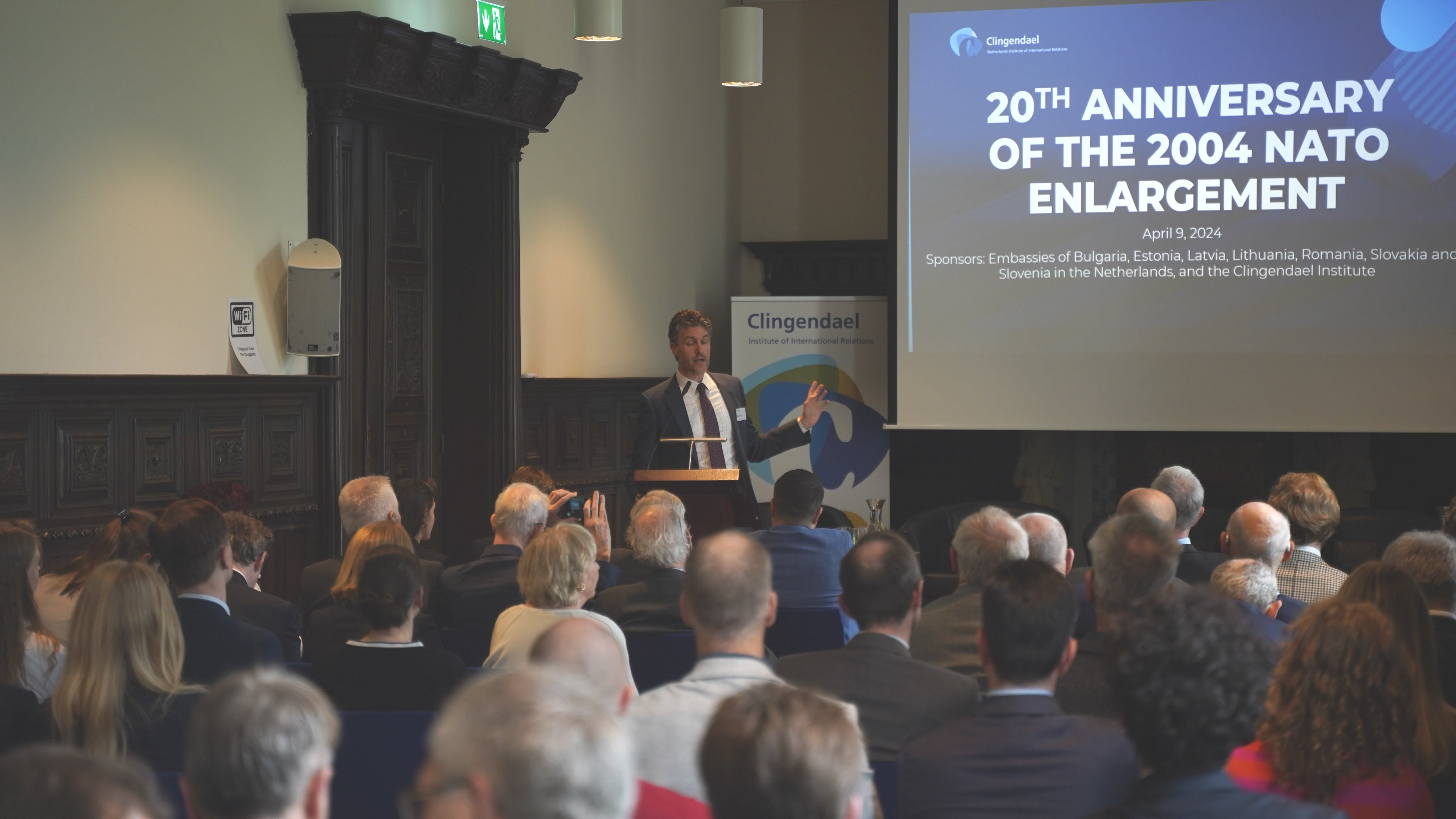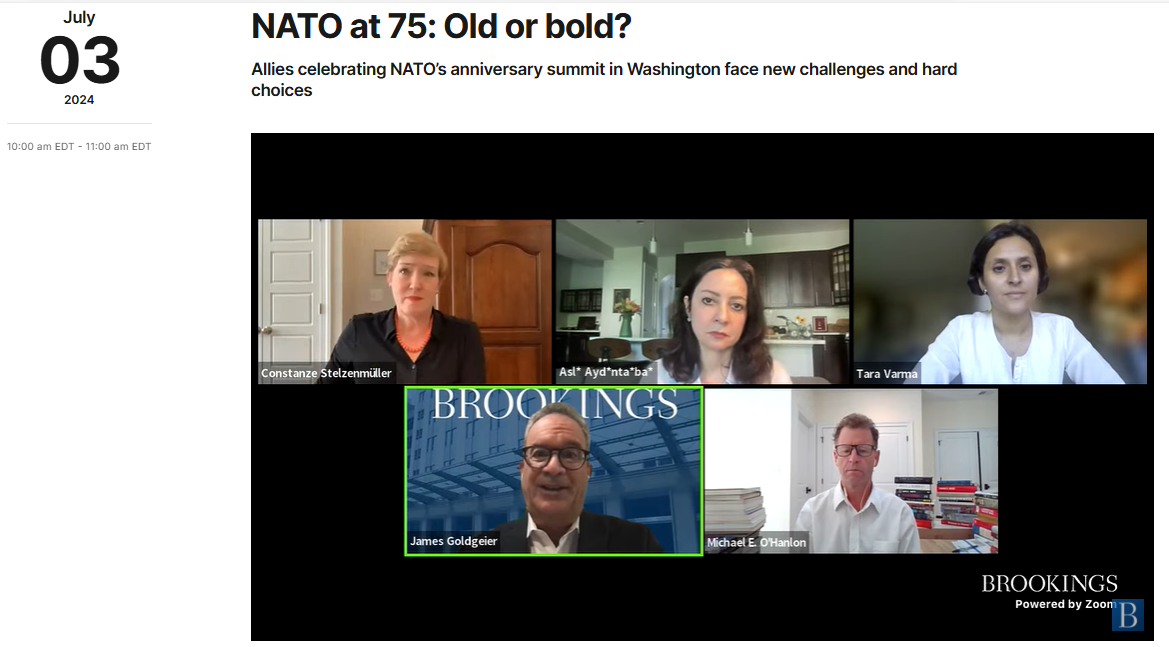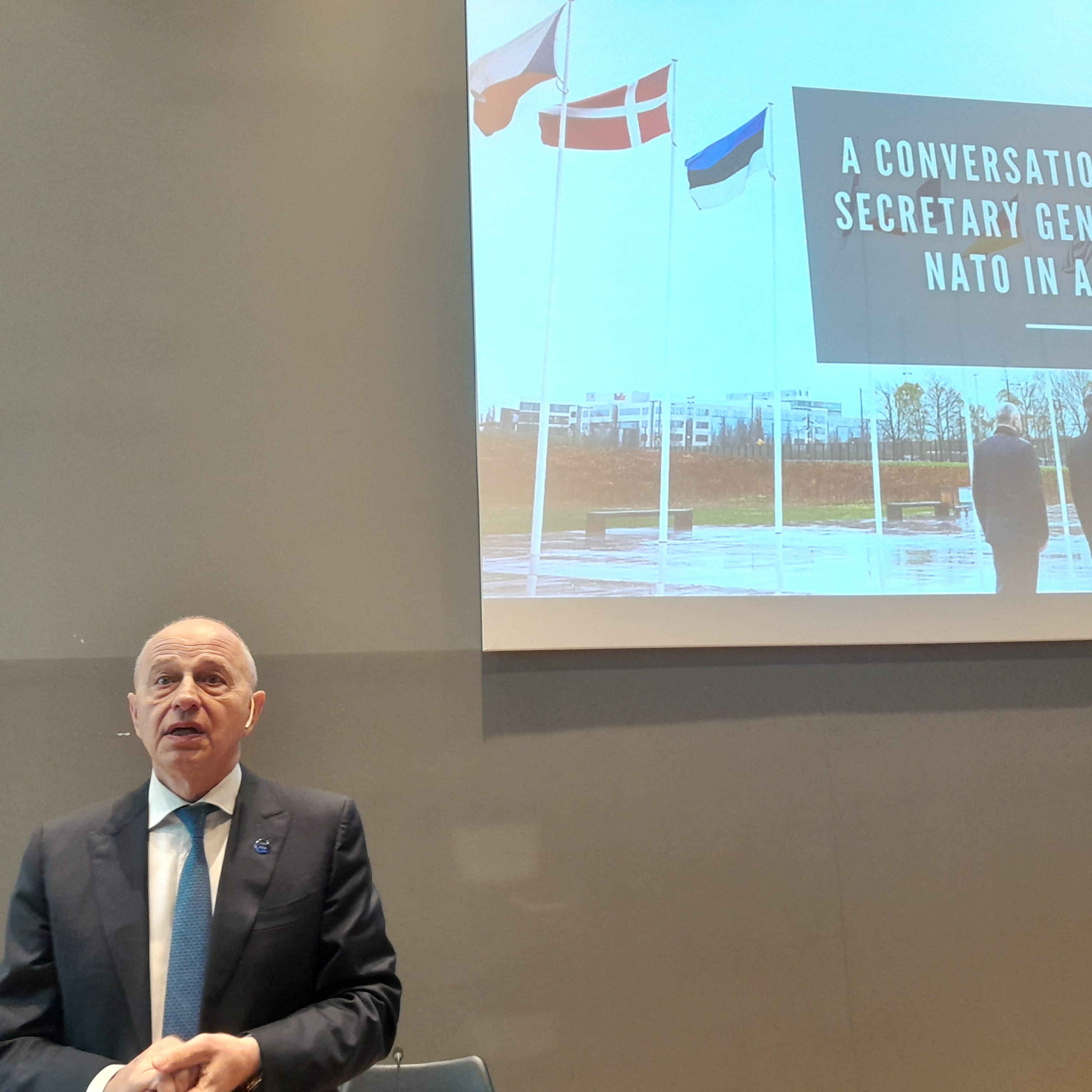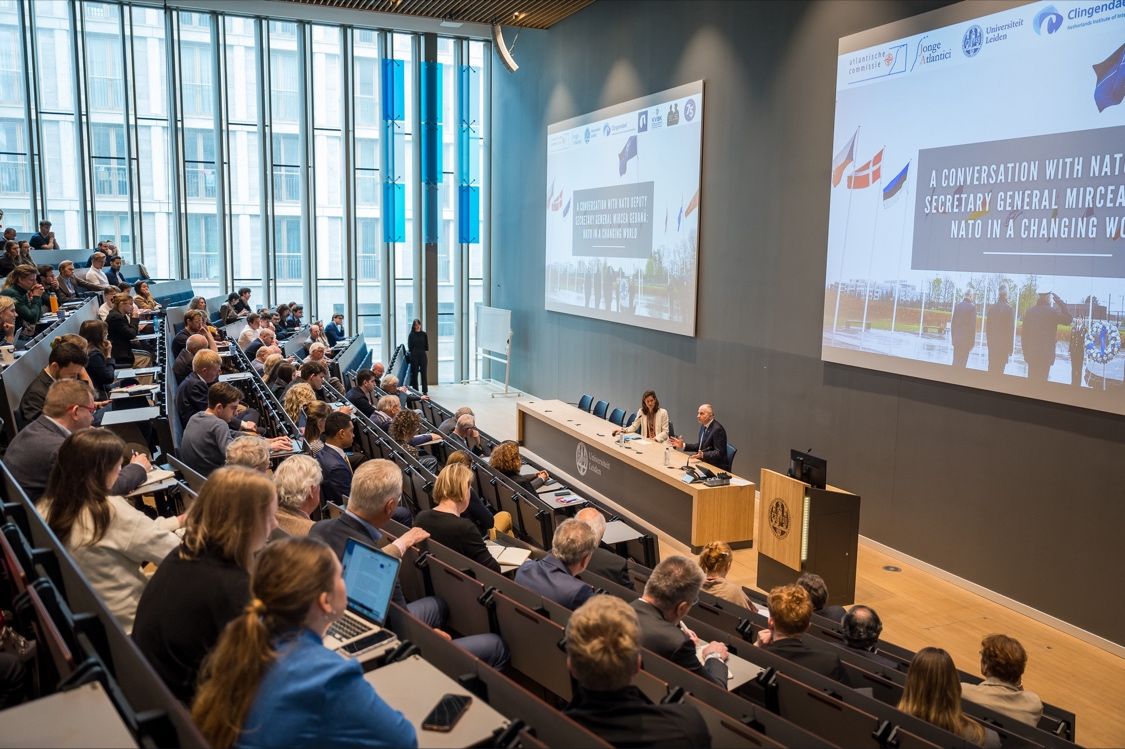| A Conversation with NATO Deputy Secretary General Mircea Geoană: NATO in a Changing World |
|
|
The Deputy Secretary General focused on the challenges facing NATO in the year the Alliance marks its 75th anniversary, including in the context of the upcoming NATO Summit in Washington, Russia’s ongoing war in Ukraine, NATO’s relations with its Asia-Pacific partners, and the impact of emerging and disruptive technologies.
The war itself was brought close to the people present by the intensity of the conversation.
Main findings are that we are in the rubble of geographical developments but the global competition can be managed.
This event took place in The Hague on 17 May 2024 in the presence of many students asking critical questions and in the margins of an international conference on cyber security,
|
|
|
| On March 29, 2004, Bulgaria, Estonia, Latvia, Lithuania, Romania, Slovakia and Slovenia formally acceded to NATO in what was the biggest enlargement round in the history of the Alliance |
|
 |
Since then, the seven countries, which represent much of NATO‘s eastern flank, have contributed extensively to the implementation of NATO‘s core tasks and policy priorities, and to this day remain among the most active and supportive members of the Alliance.
Since Lithuania hosted the NATO Summit in 2023 and the Netherlands are poised to host one in 2025, this event will provide a unique opportunity to combine an anniversary celebration and a focused discussion on the past, present and future of the North Atlantic Alliance. This event, therefore, will focus both on highlighting the impact of the 2004 enlargement, as well as the challenges NATO faces on its eastern flank and how the Alliance can face those.
The programme of this anniversary events consisted of two panels, one focusing primarily on the achievements of NATO related to the 2004 enlargement round, and a second one focusing on the current and future challenges that the Alliance faces, specifically on its eastern flank.
The first panel, moderated by Bob Deen, focused on the achievements and looked back on the period since the seven countries joined NATO. Panel experts highlighted NATO’s transformation from an expeditionary force into a defensive force, the evolving relationship with Vladimir Putin, and the impact of events such as the Russo-Georgian War (2008) and the Annexation of Crimea (2014). Additionally, the panel discussed NATO’s latest enlargement with Montenegro and North Macedonia, as well as the prospect of future enlargements involving Ukraine and Georgia. Panel guests included former NATO Secretary-General Jaap de Hoop Scheffer, Ambassador-at-Large of Latvia and former NATO Assistant Secretary General Baiba Braže, Permanent Representative of Slovenia to NATO Andrej Benedejčič, and Permanent Representative of Romania to NATO Dan Neculăescu.
The second panel, moderated by Dick Zandee, addressed the challenges that NATO faces moving forward, particularly looking ahead to the upcoming NATO summits in Washington and the Netherlands. Discussions encompassed a range of topics, including hybrid challenges posed by Russia, the rise of China, tensions in the Indo-Pacific and the situation in the Black Sea. Panelists also discussed Russia’s war in Ukraine and NATO’s role in the Western Balkans, as well as the future of the Atlantic partnership and the need for European strategic autonomy. Despite these formidable challenges, the panel composed of Permanent Representative of Slovakia to NATO Peter Bátor, former Minister of Foreign Affairs of Bulgaria and Permanent Representative of Bulgaria to NATO Nikolay Milkov, Deputy Minister of Defense of Lithuania Žilvinas Tomkus and Director of the Netherlands Atlantic Association expressed optimism regarding the future of the alliance. They underscored the resilience demonstrated by NATO in overcoming past challenges. e countries’ 2004 NATO accession.
|
|




